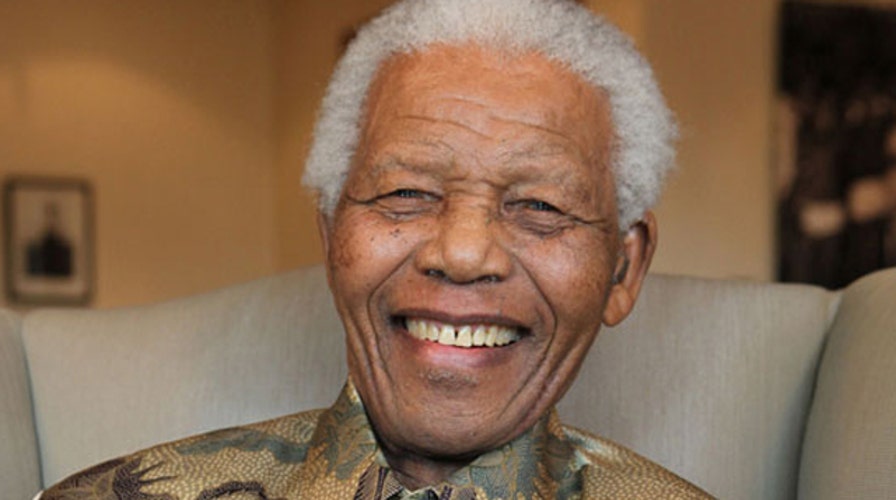Mandela saved South Africa from 'verge of civil war'
Zelda la Grange shares details in her new book 'Good Morning, Mr. Mandela'
Terrorist or national hero?
That is the question facing South Africans as they grapple with how to keep alive the legacy of Nelson Mandela, the activist and nation’s former president who died seven months ago.
Zelda la Grange, who worked with the late leader, is driving a mission to educate South Africans on Mandela. La Grange grew up in a white Afrikaner family that supported the rules of apartheid – the system of racial segregation imposed by the former Afrikaner minority regime – and referred to the then-imprisoned Mandela as “a terrorist.”
But la Grange, author of "Good Morning, Mr. Mandela," says her choice to join Mandela’s administration in 1994 would change her perspective of the then-new president. La Grange began working for the South African government as a secretary in 1992.
“What Nelson Mandela wanted to do is to really show the rest of the world that we are an embraced society now, we are going to embrace even people who represented apartheid,” la Grange told FoxNews.com.
Initially, la Grange was skeptical Mandela could unite the country.
“Absolutely we all had our doubts … when I faced him for the first time you must remember I was brought up to believe this man is the enemy. He represented fear in my eyes, yet he extended his hand to me.”
Mandela would always tell his staff “it’s easier to change other people than it is to change yourself -- so you have to start with yourself. I had to start with admitting I needed to change,” said la Grange.
The minority Afrikaners feared those they oppressed would seek revenge and widespread violence would ensue.
“We were really on the verge of civil war,” said la Grange. Mandela worked to avoid this by giving “credit to each and every South African who wanted to and decided to bring about peace … [he worked] to make sure we didn’t burn the country down to the ground.”
La Grange left the government in 2002 and became a full-time employee of the Nelson Mandela Foundation.
South Africa, she says, is again confronting social problems that plagued the country in the 1990s.
“We find ourselves, like many places in the world, in a very interesting time -- where we are grappling with racial issues again,” said la Grange. “After Mr. Mandela’s death, it's perhaps time people across the world, not only South Africans, try to comprehend the true value of this man’s legacy of peace, of his humanitarian efforts and perhaps it could help us deal with our current issues. “

